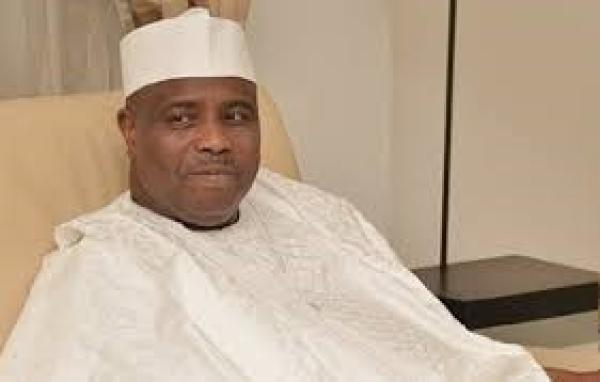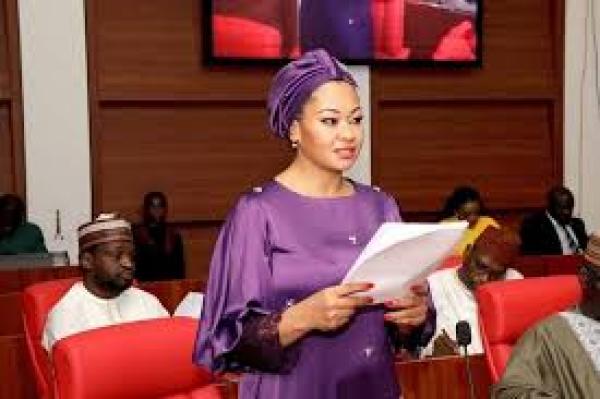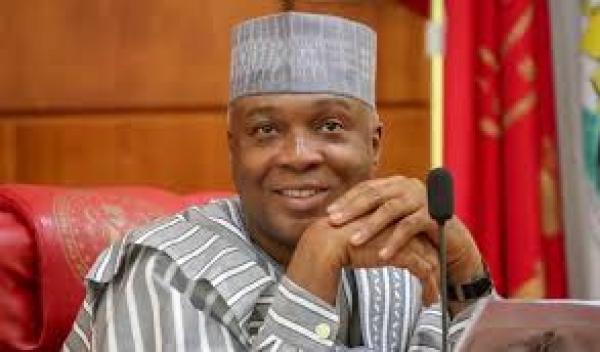
Dr Bukola Saraki
This writer concluded his first piece maintaining that the eighth National Assembly had begun on an explosive note. Senator Saraki’s political sagacity earned his quixotic desire, albeit, through the dint of a strategy reminiscent of a palace coup. Regardless of the perspective from which it is viewed, Saraki’s ace is not novel to the letter but rather reflecting his single mindedness and apathy for whose ox is gored in the long run. Saraki ultimately emerged as the big toe never to be stepped upon with the way events played themselves out. He naturally ought to be perceived as a traitor by the Peoples Democratic Party (PDP) going by how his defection left a huge vacuum in the party. He has, however, been able to command an unparalleled support having formed a symbiotic alliance with the members of the same party which he earlier ditched.
It is no wonder the Yorubas would always say that "omo ina laa ran sina" (literally meaning we wage war against hell using an insurgent from hell). In the previous piece, this writer drew a parallel between the political strategies of Saraki and that of Afonja, a local ruler of Ilorin in the old Yoruba kingdom. As expected, certain quarters thought it to be inflammatory while some saw it in the light of an inherent display of prodigality. I digress.
Proceedings have begun and much to the chagrin of the All Progressives Congress (APC), Senator Ekweremadu, who happens to be the deputy senate president, is a PDP member. Saraki’s anti-party gash eventually resulted to be a first-rate diplomacy accruing to the South-East. Many have feared long before now that the South-East would emerge as the biggest political losers of the new dispensation going by the region’s separationist demeanour in the last voting exercise. Without any intention to sound prejudiced, it might be insightful to note that unlike the Yorubas and the Hausa-Fulanis whose pre-colonial kingdoms had expansionist policies, the Igbos ran communities devoid of kings and rulers. This they preferred so as to avoid the entrenchment of dynasties and tyrannies. This perhaps best explains why the South-East frowned at the penetration of the APC which some of my Igbo colleagues often called a Yoruba-Hausa party.
While this writer feels no grudge whatsoever about the regional preoccupations being championed by the two major political parties, it is apposite to highlight the ethnic incisions that were etched in the heat preceding the presidential election. It is well known by all observers that ex-President Jonathan’s ascent to the first seat came by providence after the PDP’s zoning formula was politically suppressed. The friction caused by the shift in the political paradigm led to a snub effect among the northern elites who incited a bandwagon drift to the other end of the political spectrum. The South-East including a large chunk of the South-South extraction discerned the attitude of the North as a premeditated act of sedition meant to frustrate the administration of Goodluck Jonathan.
The South-West found itself in the middle of this cold war as the bride being sought after by the other two blocs for the consolidation of their regional clouts. As we all know, the West at the end of the day preferred the camaraderie of the North. It then becomes imperative to ask why? Firstly, the West shares a similar ideology of expansionism as the North. Dredging down the memory lane, the old Yoruba kingdom was fraught with conquests and expeditions similar to the radical drive which was innate among the Fulani.Thus, the reasons for the telepathic consonance might not be far-fetched. Secondly, the political ideology of the Yoruba was really at variance with the managerial approach of Olusegun Obasanjo who preferred pursuing a school of thought different from the Awoism philosophy. In the first place, the candidacy of Olusegun Obasanjo in 1999 came to reality because it was the counsel of the northern elites. They invested their trust in him going by his loyalty towards their cause in the second republic. Thirdly, the radical political sophistry of the West has always spurred her political class in wanting to have a finger in every pie. This, believably, led to their preference for the political permutation in favour of the North.
Thus, when 2015 finally approached, a deep furrow had already been engraved across the fragile tendons of the nation. The bigotry dripped in virtually every print media and social network as individuals pitched their tents along regional lines. Despite the face-saving tactics of the PDP which was then still the ruling party, the sense of foreboding nauseated their senses. Moreso with the inability of the party to come to a truce with aggrieved members of the party who were from the South-South, political pundits knew that the party’s waterloo was just a matter of time. When PDP finally ceded its stronghold at the centre, it dawned on the party stalwarts that their greed and bickering had been feeding as well as arming the party to crumble.
Oh, yes! Saraki aced his opponents and in the process granted the PDP another lifeline. The South-East’s perception of the APC as a conglomeration of aggrieved political elites from the northern and western blocs best explains why the PDP might continue to hold sway in the region. Does one need a soothsayer to understand why the World Igbo Congress is staunchly in support of the Saraki-Ekweremadu alliance? The eighth National Assembly couldn’t have been more explosive with the status quo!






















